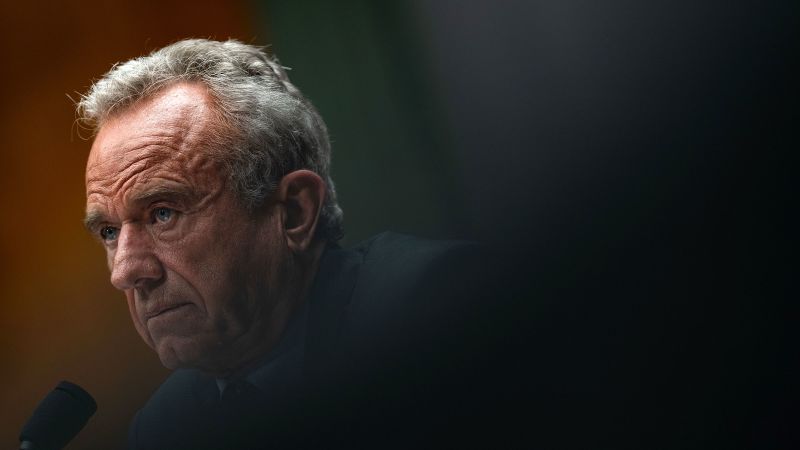Seventeen vaccine experts who were dismissed from a federal advisory panel last week say they are worried that recent moves by US Health and Human Services Secretary Robert F. Kennedy Jr. will destabilize vaccine policy in the US and jeopardize access to lifesaving immunizations.
The experts sat on the US Centers for Disease Control and Prevention’s Advisory Committee for Immunization Practices, or ACIP, which plays an important role in ensuring access to vaccines. When the panel votes to recommend a vaccine, insurers are required by law to cover it with no cost-sharing to patients such as co-pays. They also determine which shots are purchased by the government for children so low-income families can get vaccines with no out-of-pocket costs.
For more than 60 years, ACIP has reviewed the latest evidence on vaccines as well as passive immunizations called monoclonal antibodies. The advisers consider who should get vaccines and when, and their recommendations are influential: The CDC isn’t bound to follow them, but it usually has.
Citing a “crisis in public trust in vaccines,” Kennedy dismissed all 17 sitting members of ACIP on June 9, saying without evidence that the panel was “plagued with persistent conflicts of interest.” Two days later, Kennedy named eight new advisers to the panel, including a few who’ve cast doubt on the safety and necessity of some vaccines. The move came about two weeks before the committee’s next meeting.
On social media, Kennedy said of the new members “all of these individuals are committed to evidence-based medicine, gold-standard science, and common sense. They have each committed to demanding definitive safety and efficacy data before making any new vaccine recommendations.”
In aviewpointpublished Monday in the Journal of the American Medical Association, the former members dispute the idea that Americans don’t trust them or the vaccines they recommend. They say the rigorous review process that members go through to sit on the panel minimizes the risk of biases and financial conflicts of interest.
For the past 18 years, they say, the National Immunization Survey has shown that 99 of every 100 children in the US have received at least some recommended vaccines by 2 years of age. “This does not suggest the population is so distrustful that it warrants dismantling the process by which vaccines have been recommended.”
They say the abrupt dismissal of the entire membership of ACIP – along with CDC staff members who supported the committee’s work – has “stripped the program of the institutional knowledge and continuity that have been essential to its success over decades.”
“The termination of all members and its leadership in a single action undermines the committee’s capacity to operate effectively and efficiently, aside from raising questions about competence,” they write.
Ultimately, access to vaccines will be compromised, they say, putting “US families at risk of dangerous and preventable illnesses.”
Other experts agree.
“Even if you agree that other perspectives are needed on ACIP, the way he went about it sets a dangerous precedent, and is already creating LESS trust in the process,” Dr. Jerome Adams, who was surgeon general during President Donald Trump’s first term and is now a professor at Purdue University, said Monday ina poston social media.
Adams said that such outside interference on a group of experts who are supposed to be able to review science free from political influence sets an unacceptable standard.
Any new administration that doesn’t like panel or its recommendations could just “throw them out and start all over again,” Adams saidin an interviewwith Axios.
When asked for comment on points raised in the commentary, HHS referred CNN to Kennedy’s statements on social media.
